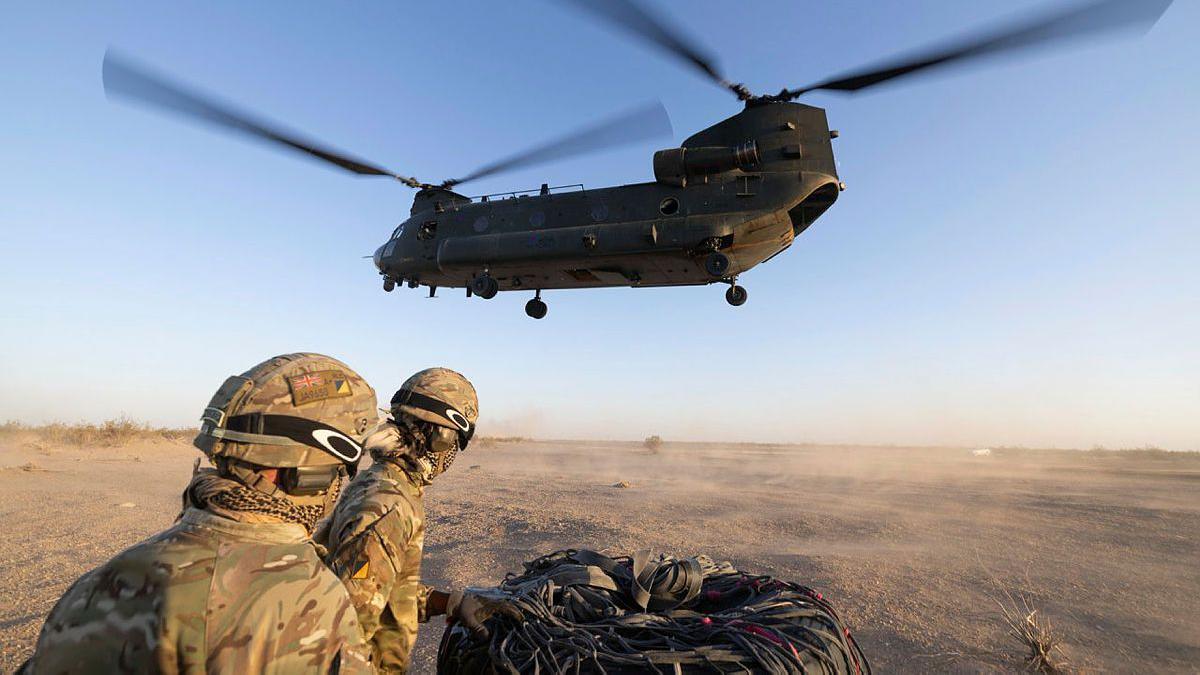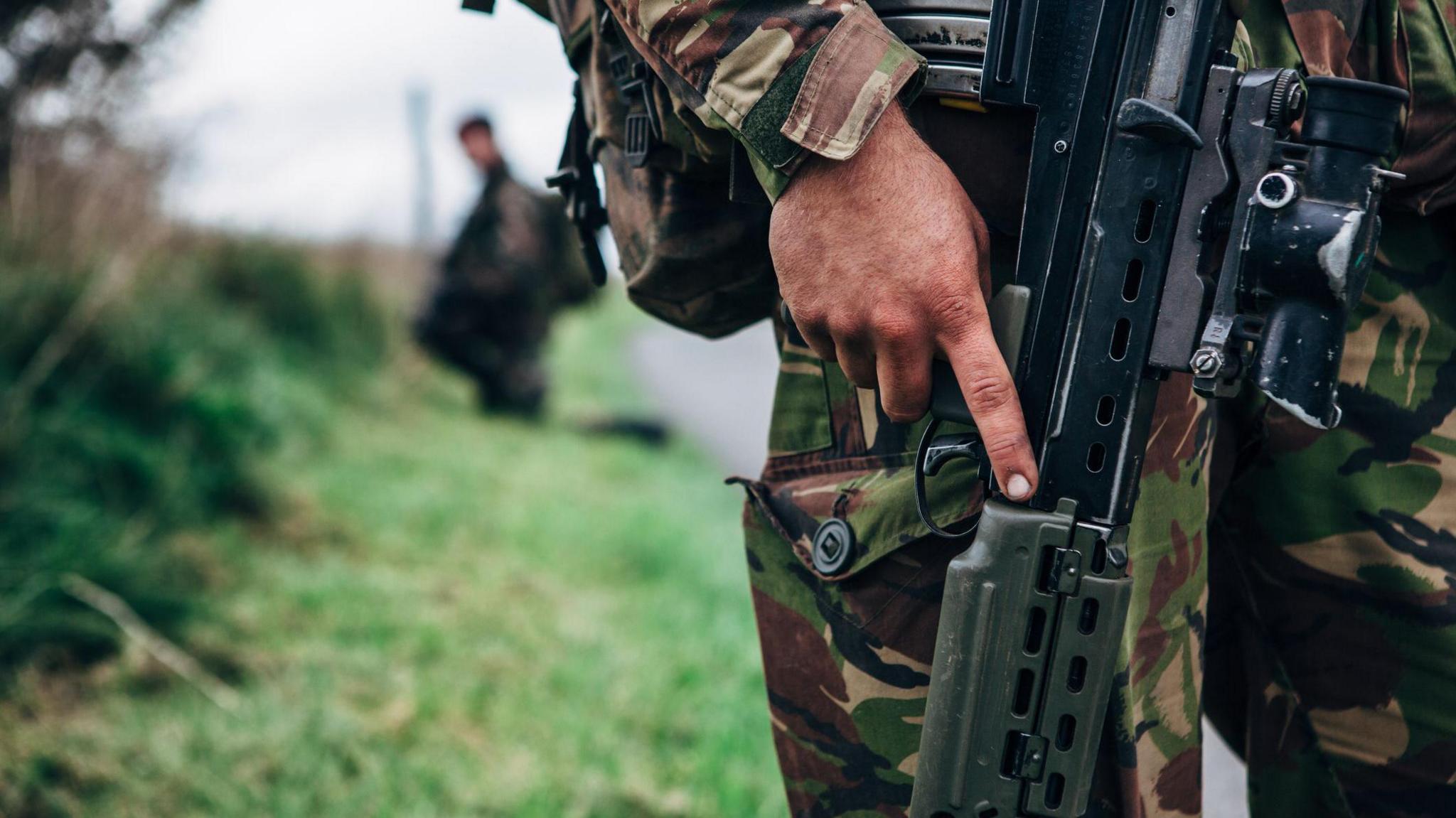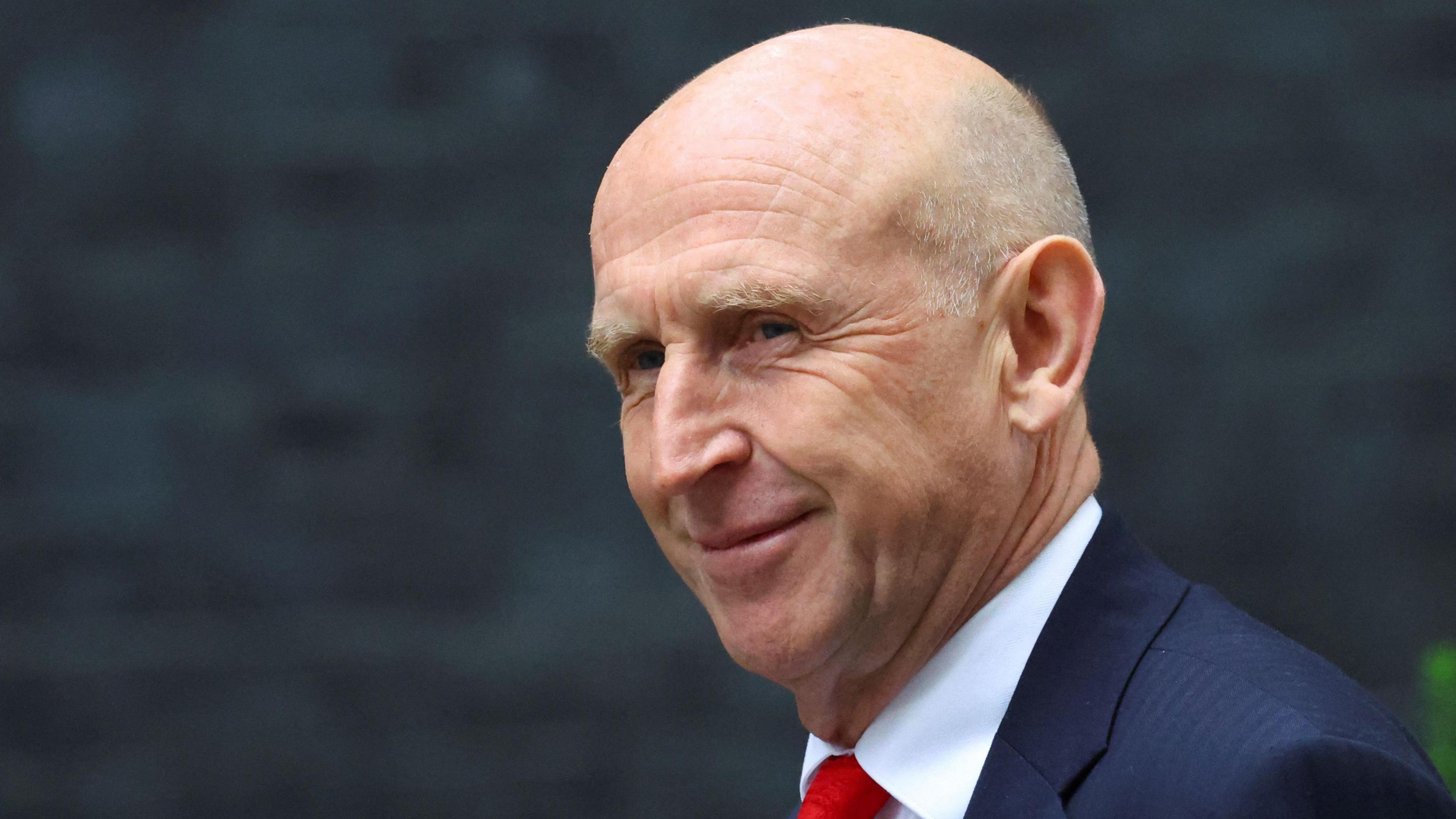£500m defence cuts as ships, drones and helicopters scrapped

HMS Bulwark is one of the ships which will be decommissioned, seen here in an undated Ministry of Defence handout
- Published
The UK will save £500m by scrapping old military equipment early, the defence secretary has announced, despite a warning that the UK faces "increasing global threats".
Ships, drones and helicopters - some more than 50 years old - will be decommissioned ahead of schedule, John Healey told the Commons.
But critics said the move would leave UK defence weaker, at a time of growing international tensions and after more than a decade of funding pressures on the armed forces.
Shadow defence secretary James Cartlidge said Labour was "scrapping capabilities just as the threats to our nation are growing".
The government says the move will help with the implementation of the strategic defence review, due to report back next year.
The equipment being scrapped is:
Two amphibious assault ships, HMS Albion and HMS Bulwark
A Type 23 frigate, HMS Northumberland
Two tankers, RFA Wave Knight and RFA Wave Ruler
Watchkeeper WK450 Mk1 drones
Fourteen CH-47 Chinook helicopters, the oldest Chinooks currently being used by the UK
Seventeen Puma helicopters, which were first introduced over 50 years ago
HMS Bulwark and HMS Albion are being held at lower levels of readiness and were not planned to go out to sea before their planned retirement, the MOD said, but were still costing millions of pounds per year to maintain. However, their scrapping now leaves the UK without any amphibious assault ships.
Structural damage discovered during repairs to HMS Northumberland means repairing the ship is now uneconomical, the MOD says.
The decommissioned ships will be replaced by a new Type 26 frigate and multi-role support ships, but those are not expected to be introduced for several years.
The Chinook and Puma helicopters being retired have been in use for decades. The Pumas will be replaced by new Airbus H-145 helicopters in 2026, while the Chinooks will be replaced by the newer H-47(ER) variant the following year. But critics pointed to the gap to argue that the Royal Air Force would have fewer helicopters until the replacements are introduced.
No replacement for the Watchkeeper drones has yet been announced. But drone technology has progressed quickly in the 14 years since it was introduced, the MOD said, something which has been particularly obvious during the Ukraine war.

Fourteen CH-47 Chinook helicopters will be decommissioned, an example of which pictured near El Centro, US in October
Healey acknowledged the cuts came at a time of "war in Europe, growing Russian aggression, conflict in the Middle East and technology changing the nature of warfare".
In a statement to MPs, he warned that further cuts could be required but insisted he had the support of armed forces chiefs for the decisions he had made.
Experts say the cuts indicate that the MOD is facing significant funding pressures.
"These are mostly capabilities that are approaching retirement anyway, have been at low levels of readiness or aren’t worth further refits or investment," said Matthew Savill, director of military sciences at the Royal United Services Institute think tank.
"But the fact that defence either can’t crew them, or is prepared to cut them to make very modest savings over five years is an indication of just how tight resources must be in the MOD right now."
The MOD believes the changes will help deliver the aims of the strategic defence review, a "root and branch" consideration of the current state of the armed forces, the threats the UK faces and the capabilities needed to address them.
"These are not the only difficult decisions we will need to make as a new government to deal with the fiscal inheritance," Healey said, adding that the changes would "secure better value for money for taxpayers and better outcomes for our military".
The savings will be retained in defence and all personnel will be redeployed or retrained, Healey said.
In the Commons, Conservative shadow secretary of defence James Cartlidge claimed that HMS Albion and HMS Bulwark could have been prepared if needed for a warfighting scenario, contrary to Healey's claims that the ships were effectively mothballed.
Chief of the General Staff Gen Sir Roly Walker said: "I’ve flown many missions in CH47 and Puma, latter day warhorses – and I will miss them.
"But all warhorses must go out to pasture at some stage, oftentimes because we’ve found a faster, better, and cheaper way."
Chief of the Defence Staff Adm Sir Tony Radakin said: "Accelerating the disposal of legacy equipment is the logical approach to focus on the transition to new capabilities that better reflect changing technology and tactics.
"It also complements our taking some tough decisions to ease some of the current financial pressures."
- Published16 July 2024

- Published9 November 2024

- Published3 September 2024
